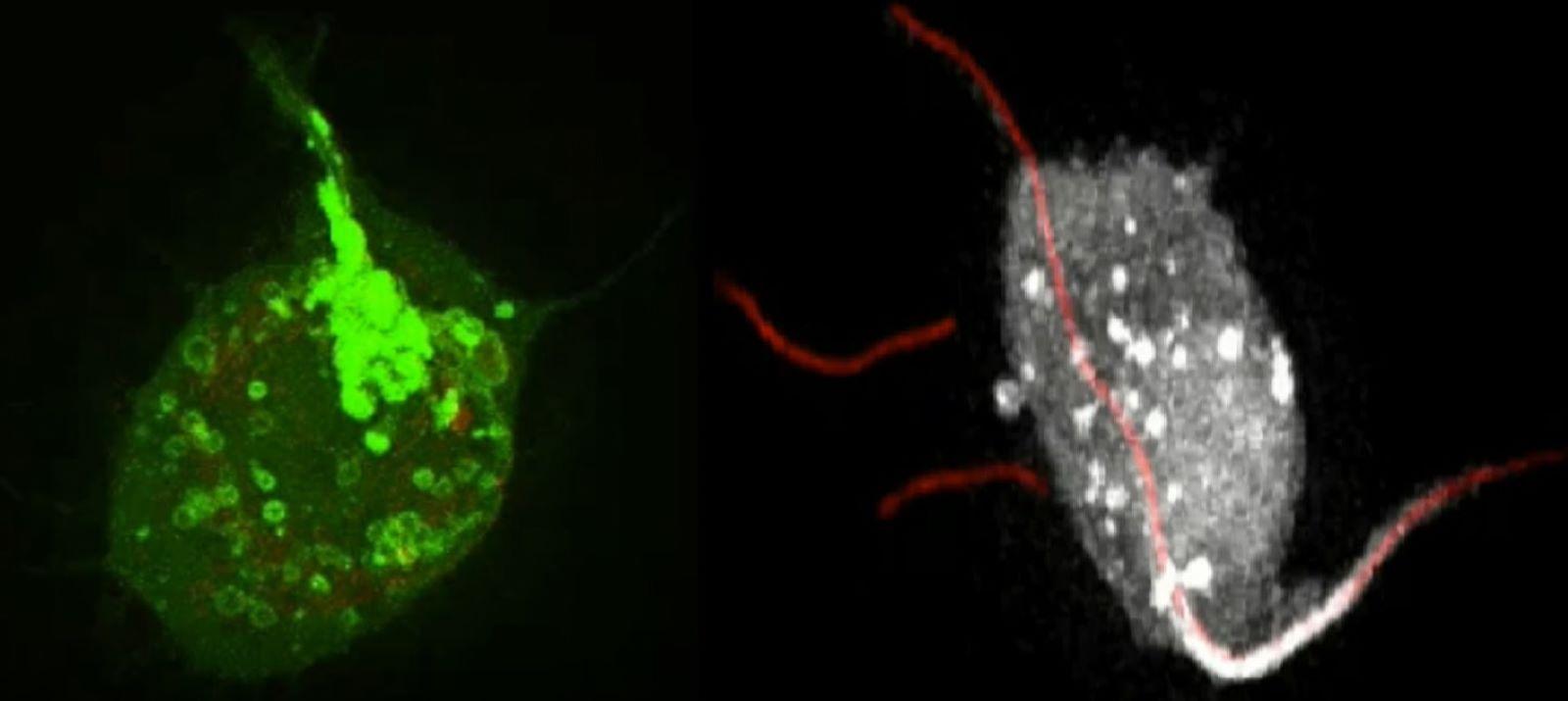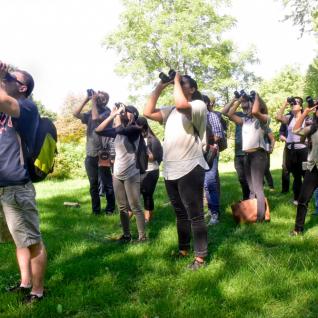Integrative Biology Specialist (HBSc)
Admissions Category: Life Sciences
Are you a prospective student applicant?
You can enter the Health Sciences Stream to accelerate your career in a health care profession

Program Overview
The Integrative Biology program allows students to pursue a specialist program built on a broad, multi-perspective approach towards understanding biological complexity. This program provides students with a solid foundation in core biological areas (cellular and organismal biology, ecology and conservation, genes and development). A key advantage to this program is that it allows students to pursue specialization in more than one area at the same time. Many of the biggest issues facing today’s planet require scientists that are capable of bringing different and complementary perspectives to look for solutions, and this program provides the coursework and training to help undergraduates build this broad knowledge base.
Complementary Programs:
Not applicable.
Check out future career opportunities and skills acquired from completing this program:
Competencies & Skills
- Collect, analyze and interpret data
- Conduct and design experiments; use lab equipment
- Explore how organisms interact with the environment
- Chart the development of complex organisms
- Inspect specimens
- Research and analyze biological questions
- Write literature reviews and scientific reports
Careers for Graduates
- Pharmaceuticals/Medical Sales
- Conservation Officer
- Lab Technician (Industry/ Government)
- Assistant Biologist, Food Inspection
- Water Technologist in Conservation Authorities
- Policy Analyst
- Health Care careers
- Careers in Education/TRCA/ Ministry of Natural Resources
Further Education
- Graduate Studies
- Public Health: Epidemiology
- Environmental Science
- Sustainability
- Genetic Counselling
- Medicine, Dentistry, Education
- Physical Therapy, Occupational Therapy
- Clinical Research
- Medical Laboratory Technology
- Environmental Technology
Program Pathway
Year 1 | Year 2 | Year 3 | Year 4Choose Your Courses Wisely
Develop Your Academic & Research Skills
- Attend BioSA’s BioAID Review Sessions for guidance with writing lab reports.
- Contact the UTSC Library for in-depth research assistance; writing support is available at the CTL Writing Centre.
- Attend a BioSci info session on directed research.
Apply Theory to Practice
- Attend the Professor/Graduate Student Mix & Mingles to meet many of the professors & TAs you will encounter as you progress through your degree.
- Start building your Co-Curricular Record (CCR) and search for Experiential Learning or Work-Integrated Learning opportunities; check listings on CLNx.
Become an Engaged Citizen (Locally & Globally)
- Join a professional student organization: Future Black Physicians, Health Occupation Students of American UTSC, or MEDLIFE.
- Build confidence and self-esteem through Department of Student Life’s (DSL) LEAD program.
- Consider volunteering with Campus Farm and Rouge Park.
Plan for Your Future Career
- Volunteer with organizations to explore your interest in industries related to your program of study; check listings on CLNx (>Jobs & Recruitment).
- Attend the UTSC Get Experience Fair in September or register with Scarborough Campus Student Union’s (SCSU) Volunteer Network Program.
Year 2
Choose Your Courses Wisely
- Complete BIOB90H3.
- Use Degree Explorer to ensure you meet your degree and program requirements.
Develop Your Academic & Research Skills
- Seek support from professors and TAs during office hours.
- Check the Research Catalogue on CLNx for possible research opportunities.
- Volunteer in research labs, hospitals, doctors offices, community organizations, foundations.
- Consider doing a directed research course.
Apply Theory to Practice
- Take part in Conversation with Biologists, an event where students can interact with leading scientists and learn about their research and career trajectory.
- Consider Work Study (>Jobs & Recruitment>Work Study) jobs for possible research opportunities.
Become an Engaged Citizen (Locally & Globally)
- Build your official CCR by getting involved with the Scarborough Pre-Med Society or the Medical Education Initiative Organization.
- Consider participating in science outreach: Let’s Talk Science, Global Learning opportunities.
Plan for Your Future Career
- Gain experience by applying for a summer, part-time or Work Study position via CLNx (>Jobs & Recruitment).
- If you are considering grad school, speak to professors and program advisors early so you know what to keep in mind.
- Explore careers through AA&CC’s Job Shadowing and In The Field programs.
- Apply for DSL’s All-In Leadership program.
Year 3
Choose Your Courses Wisely
- 1.0 credit of Advanced Courses in Cellular and Organismal Biology.
- Complete BIOC90H3.
- Use Degree Explorer to ensure you are on track with your degree.
Develop Your Academic & Research Skills
- Consider entering the following Research Awards Contests: UTSC Library Undergraduate Research Prize, Mitacs Globalink, NSERC USRA, TD Undergraduate Research Opportunity Fellowship.
- Continue to build your volunteer and work experience.
Apply Theory to Practice
- Continue to build on your skills and knowledge through relevant events offered through your department, student groups, DSL and the AA&CC.
- Consider being a peer reviewer for the Journal of Natural Sciences.
Become an Engaged Citizen (Locally & Globally)
- Attend Diversity in Medicine Seminar (for future medical students).
- Volunteer with DSL to be a First Year Peer Advisor. Take part in other DSL activities, such as Indigenous Experiential Journey trip, or intern with an NGO with the Queen Elizabeth II Diamond Jubilee Scholarship Program.
- Attend a Café Scientifique in your local community.
Plan for Your Future Career
- Speak with a staff member at the AA&CC to plan a potential career path.
- Check CLNx for networking events and employer information sessions.
- Attend the Graduate & Professional School Fair in September.
- Join a conference like TEDxUTSC or International Development Conference to develop professional skills.
Year 4
Choose Your Courses Wisely
- 1.0 credit of Advanced Courses in Ecology and Conservation.
- 1.0 credit of Advanced Courses in Genes and Development.
- Complete BIOC90H3 if you have not already.
- 1.0 Credit of D-Level Biology Courses.
- Register your “Intent to Graduate” on ACORN by the deadline.
- Attend the weekly Biology Seminar Series (Fridays 12pm).
Develop Your Academic & Research Skills
- Submit independent research work to UTSC’s Journal of Natural Sciences.
Apply Theory to Practice
- Participate in Ontario’s Synapse Life Science Competition.
- Consider being an editor for the Journal of Natural Sciences.
Become an Engaged Citizen (Locally & Globally)
- Build your official CCR by getting involved with the Scarborough Pre-Med Society or the Medical Education Initiative Organization.
- Consider participating in science outreach: Let’s Talk Science, Global Learning opportunities.
Plan for Your Future Career
- Participate in the AA&CC’s Partners in Leadership program to learn and network with an alumni mentor about transitioning to work or further education.
